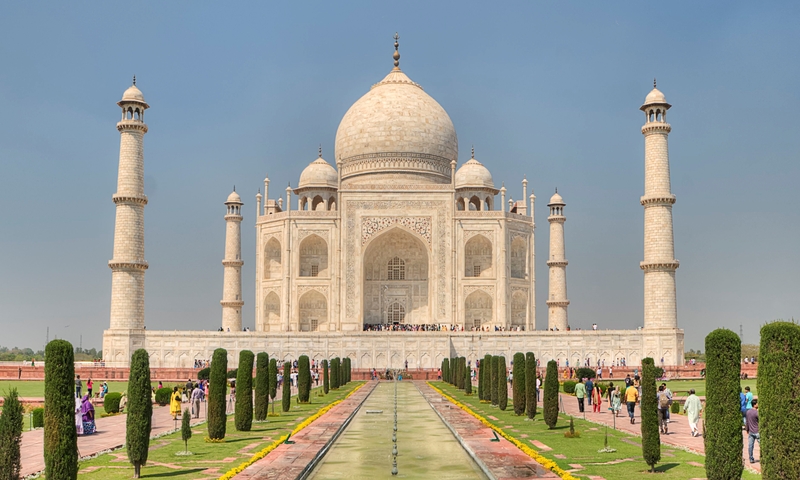The aim of the plea, according to petitioner Dr Rajneesh Singh, is to put an end to the alleged controversy revolving around Taj Mahal that it is a site of a Hindu temple known as the Tejo Mahalaya.

Allahabad: “Do not make mockery of the Public Interest Litigation system,” a bench of the Allahabad High Court said on Thursday while tagging a plea seeking to open around 22 rooms of Taj Mahal as a “non-justiciable” issue.
The aim of the plea, according to petitioner Dr Rajneesh Singh, is to put an end to the alleged controversy revolving around the monument that it is a site of a Hindu temple known as the Tejo Mahalaya.
“We are of the opinion that petitioner has called upon us to give a verdict on completey a non-justiciable issue,” the bench said while hearing a petition seeking the directions to the Archaeological Survey of India (ASI) to probe the 22 closed doors to find out the presence of the idols of Hindu deities.
“The first prayer (to constitute a fact-finding committee to study “real history” of Taj Mahal) cannot be adjudicated by this court,” the bench of Justices D K Upadhyay and Subhash Vidyarthi said. It added, ““Go and research. Do M.A. Do PhD”, before choosing such a topic.
The bench had earlier said that it was “not convinced” with the petition seeking the opening of locked rooms. In the afternoon, the bench said, “We are not convinced with your prayers. What are you seeking is the exploration of facts through a fact-finding committee? That’s none of your rights and it’s not under the ambit of the RTI Act.”
In the morning, the lawyer representing the petitioner had argued that the citizens of the country have the right to know about Taj Mahal. The court, however, slammed the plea and asked the petitioner to not make a mockery of the PIL system.
Opposing the PIL, the Uttar Pradesh government said that the petitioner lacks territorial jurisdiction. “How can we pronounce a verdict on this? What is your right? Where is this right? To get a particular study conducted?” the court said when the petitioner’s lawyer said he has the right, under the RTI Act, to know what is inside the 22 rooms of Taj Mahal.
